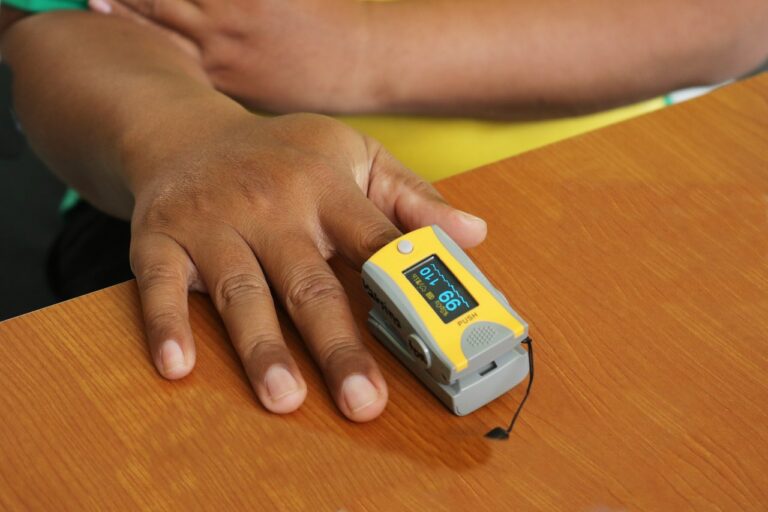Updates in immunotherapy for advanced esophageal cancer: Sky247 log in, Gold365, Gold win 365
sky247 log in, gold365, gold win 365: Esophageal cancer is a challenging disease to treat, especially when it reaches the advanced stage. Traditional treatment options such as chemotherapy and radiation therapy have shown limited success in improving the outcomes for patients with advanced esophageal cancer. However, recent advancements in immunotherapy have shown promising results in the treatment of this aggressive form of cancer.
Immunotherapy works by boosting the body’s immune system to recognize and attack cancer cells. This approach has revolutionized cancer treatment, offering new hope for patients with advanced esophageal cancer. In this blog post, we will discuss the latest updates in immunotherapy for advanced esophageal cancer and how these advancements are changing the treatment landscape for patients.
Understanding Immunotherapy for Esophageal Cancer
Immunotherapy has emerged as a game-changer in cancer treatment, offering a more targeted and effective approach to treating cancer. By harnessing the power of the immune system, immunotherapy drugs can help the body’s defenses recognize and destroy cancer cells. In the case of esophageal cancer, immunotherapy drugs target specific proteins on the surface of cancer cells, helping to stop their growth and spread.
One of the most widely used forms of immunotherapy for esophageal cancer is immune checkpoint inhibitors. These drugs work by blocking proteins that prevent the immune system from attacking cancer cells. By removing this barrier, immune checkpoint inhibitors can help the immune system recognize and destroy cancer cells more effectively.
Updates in Immunotherapy for Advanced Esophageal Cancer
1. Combination Therapy: Recent clinical trials have shown that combining different types of immunotherapy drugs or combining immunotherapy with other treatment modalities, such as chemotherapy or radiation therapy, can improve outcomes for patients with advanced esophageal cancer. These combination approaches can help enhance the effectiveness of immunotherapy and provide a more comprehensive treatment strategy for patients.
2. Biomarker Testing: Biomarker testing plays a crucial role in determining which patients are most likely to benefit from immunotherapy. Recent advancements in biomarker testing have enabled oncologists to identify specific genetic mutations or protein expressions that can help predict a patient’s response to immunotherapy. By tailoring treatment based on these biomarkers, oncologists can provide more personalized and effective care for patients with advanced esophageal cancer.
3. Targeted Therapies: In addition to immune checkpoint inhibitors, targeted therapies are also being explored as a treatment option for advanced esophageal cancer. These therapies work by targeting specific genetic mutations or proteins that drive cancer growth. By attacking these specific targets, targeted therapies can help stop the progression of cancer and improve outcomes for patients with advanced esophageal cancer.
4. Adjuvant Immunotherapy: Adjuvant immunotherapy, given after surgery or other primary treatments, is also being investigated as a way to prevent cancer recurrence and improve survival rates for patients with advanced esophageal cancer. By bolstering the immune system’s response, adjuvant immunotherapy can help eliminate any remaining cancer cells and reduce the risk of cancer coming back.
5. Immunotherapy in the Neoadjuvant Setting: Neoadjuvant immunotherapy, given before surgery or other primary treatments, is another exciting area of research for advanced esophageal cancer. By shrinking tumors and improving the overall response to treatment, neoadjuvant immunotherapy can make surgery more effective and improve outcomes for patients with advanced esophageal cancer.
6. Patient Selection: As with any form of cancer treatment, patient selection is critical when it comes to immunotherapy for advanced esophageal cancer. Oncologists consider a range of factors, including the stage of cancer, the patient’s overall health, and biomarker testing results, to determine the most appropriate treatment approach for each individual patient. By tailoring treatment based on these factors, oncologists can maximize the benefits of immunotherapy while minimizing potential side effects.
FAQs
Q: Are there any side effects associated with immunotherapy for esophageal cancer?
A: Like any form of cancer treatment, immunotherapy can cause side effects. The most common side effects of immunotherapy for esophageal cancer include fatigue, nausea, skin rashes, and diarrhea. However, these side effects are usually mild and can be managed with medication or other supportive care measures.
Q: How long does immunotherapy treatment last for esophageal cancer?
A: The duration of immunotherapy treatment for esophageal cancer can vary depending on the patient’s response to treatment and overall health. Some patients may only need a few months of treatment, while others may receive immunotherapy for a year or longer. Oncologists closely monitor patients throughout treatment to assess their response and adjust the treatment plan as needed.
Q: Is immunotherapy covered by insurance for esophageal cancer?
A: Immunotherapy is a standard treatment option for advanced esophageal cancer and is typically covered by most health insurance plans. However, coverage may vary depending on the specific type of immunotherapy drug and the patient’s insurance provider. Patients are encouraged to speak with their healthcare team and insurance provider to understand the coverage options available to them.
In conclusion, immunotherapy offers new hope for patients with advanced esophageal cancer. With ongoing advancements and research in this field, the treatment landscape for esophageal cancer is rapidly evolving. By staying informed about the latest updates in immunotherapy and working closely with a knowledgeable healthcare team, patients can access the most effective and personalized treatment options for their condition.







